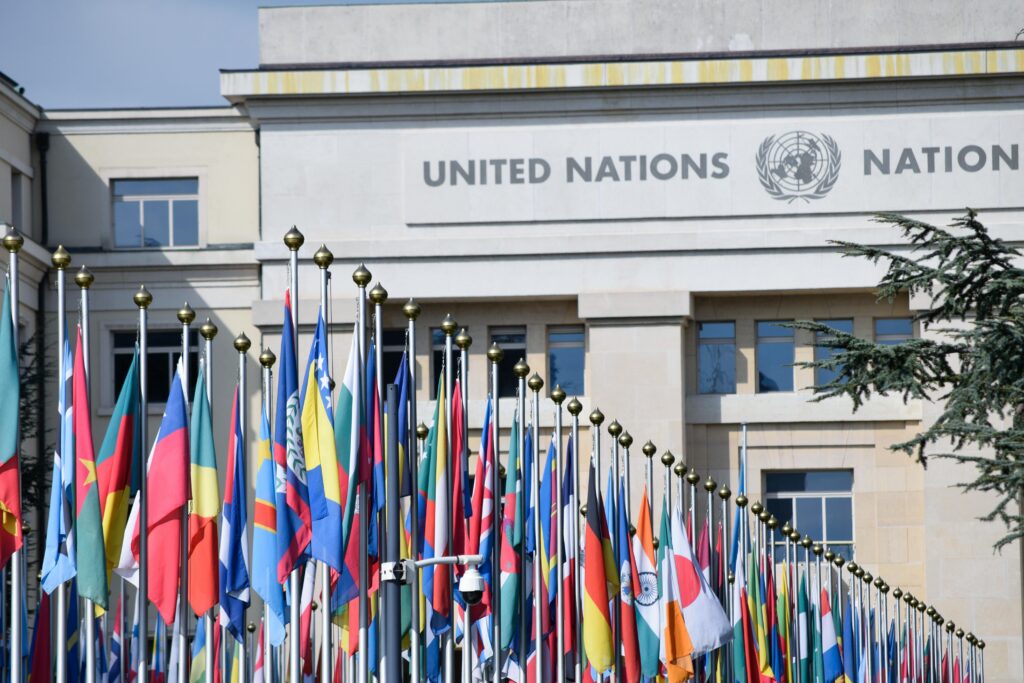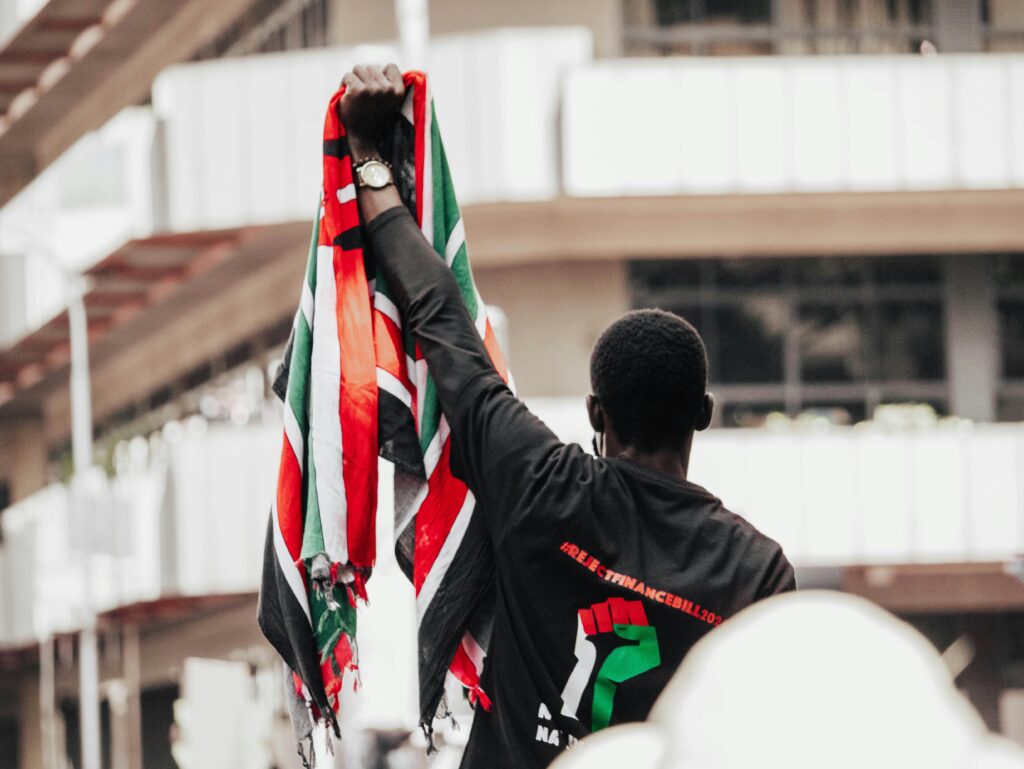When the UN Looks South: A Global Reset Rooted in African Soil

Curated by She Speaks Africa
For far too long, Africa has been the subject of global development narratives, rarely the site from which those narratives are shaped. But the world is rumbling, systems are resetting, and the center of gravity is shifting.
In what signals more than a symbolic gesture, the United Nations is reportedly preparing to relocate the global headquarters of three major agencies UNICEF, UN Women, and UNFPA from New York City to Nairobi, Kenya by 2026. They will join UNEP and UN-Habitat, whose headquarters are already based in Nairobi, positioning the city as one of only four in the world, alongside New York, Geneva, and Vienna, to host multiple UN global agencies.
This is not just about diplomacy or decentralization. It is a profound acknowledgment that the Global South, and Africa in particular, must no longer be spoken about but spoken from. And Nairobi is not just the location Nairobi is the message.
Why This Move Matters: The Cultural Signal Behind the Strategy
When global institutions choose a city, they are not merely relocating operations, they are making a statement about power, trust, and where the future is being shaped. By turning to Nairobi, the UN is signaling a decisive shift: Africa is no longer the audience of global development; it is stepping into its role as narrator, architect, and amplifier.
Nairobi, a long-standing diplomatic nerve center of East Africa, is now being recognized as a strategic and symbolic epicenter. In a region historically framed through the lenses of aid, intervention, and imposed policy, this is a reclamation of authorship. It’s not just about proximity to programs it’s about proximity to purpose.
This is what cultural capital looks like when it becomes concrete, a rebalancing of voice, geography, and influence. Africa is not waiting to be included. The world is catching up.
From Gigiri to Global: Nairobi’s Diplomatic Evolution
The UN’s presence in Nairobi has long been established but its expansion signals something far greater. The Gigiri district, home to the United Nations Office at Nairobi (UNON), is set to undergo a $340 million transformation, including a 9,000-seat assembly hall, over 30 new conference rooms, and cutting-edge green infrastructure all in service of a larger, more permanent diplomatic vision.
This isn’t about hosting more meetings. This is about shaping global mandates from African ground.
With a growing influx of international delegates, policy architects, and development leaders expected to pass through Nairobi each year, the city is not just participating in global governance it’s becoming one of its capitals.

Implications for People, Businesses, and the Region
1. New Jobs, New Industries, New Possibilities
With over 800 UN personnel expected to relocate and thousands more engaged indirectly, Kenya stands at the threshold of a massive opportunity boom across sectors such as:
- Legal and policy consulting
- Humanitarian logistics
- ICT, cybersecurity, and digital infrastructure
- Security services
- Hospitality, events, and wellness
- Creative, media, and multilingual communications
This shift allows African talent to contribute globally without having to leave the continent. It signals a reversal of brain drain and a revaluation of local expertise. It also offers young professionals a chance to be part of international development conversations from a base in Nairobi.
2. Real Estate & Urban Infrastructure: A Growing Hub
Nairobi’s diplomatic districts namely Gigiri, Runda, and the Two Rivers precinct are already seeing an uptick in demand for high-standard housing, mixed-use spaces, and conference-ready venues.
For local developers, architects, and urban planners, this is an opportunity to lead in sustainable, future-forward African urbanism with the UN’s presence requiring strict green building codes, accessibility, and compliance standards.
That said, gentrification and rising living costs in these areas may disproportionately affect middle- and low-income residents, something policymakers and planners must proactively address to ensure inclusive urban growth.
3.Cultural Capital & Regional Influence
Nairobi’s elevation lifts East Africa as a whole.
- Uganda and Tanzania benefit from proximity to a new global policy center.
- Startups and NGOs across the region gain easier access to UN grants, partnerships, and pilot opportunities.
- Universities and law schools are being pushed to evolve, developing new programs to meet demand for development professionals, translators, mediators, and negotiators.
More importantly, this is a moment to center African cultural intelligence in global governance. Kenya’s artists, strategists, researchers, and youth now have unprecedented proximity to global influence.
A Shift in the Narrative: From Aid to Agency
For decades, Africa has hosted regional offices, development initiatives, and the occasional global summit but the relocation of headquarters is something altogether different. Headquarters represent permanence. They represent trust. They represent power.
By moving these UN agencies to Nairobi, the global community is affirming a truth long known on the continent: that the most relevant, enduring solutions are those built in proximity to the people, places, and cultures they serve.
This shift reframes Africa’s global narrative from one defined by deficits to one driven by contribution. The continent is no longer being seen through the lens of what it lacks, but rather through the leadership, creativity, and future-shaping relevance it brings to the world.

The Elephant in the Room: Can the Center Hold?
It would be disingenuous to ignore the moment Nairobi and the region find themselves in.
Just across Kenya’s northern border, Sudan is unraveling in one of the world’s most underreported humanitarian crises with displacement, starvation, and state collapse reaching catastrophic levels. Closer to home, Kenya itself has been rocked by mass youth-led protests, sparked by economic frustration and broader questions about governance, representation, and accountability.
In light of this, the relocation of UNICEF, UN Women, and UNFPA to Nairobi takes on even deeper significance. These are not just development agencies, they are guardians of human rights, protectors of the vulnerable, and advocates for dignity. And now, they are coming to a region navigating real, urgent tensions but also demonstrating real, urgent agency.
By choosing Nairobi, the UN is not ignoring these challenges. It is leaning into them placing critical infrastructure in proximity to pressure points, and affirming that Africa’s capacity to lead does not rely on perfection, but on perspective, resilience, and responsiveness.
This move forces a new kind of accountability: for the UN, to engage authentically and listen deeply; and for Kenya and the region, to rise to the symbolic weight of hosting not just offices, but ideals.
What This Means for African Creatives, Thinkers, and Builders
At She Speaks Africa, we view this not just as a diplomatic milestone, but as a generational opening one that invites Africa’s cultural and creative leaders to step into global influence with purpose and clarity.
For researchers, storytellers, strategists, artists, policy thinkers, and entrepreneurs, Nairobi’s elevation isn’t just about proximity. It’s about participation and positioning and the opportunity to reshape global narratives from African soil.
This is the moment to:
- Pitch ideas that reflect lived realities and regional nuance
- Co-create cultural and policy frameworks with diplomats and decision-makers
- Design brands, experiences, and platforms that align with institutional demand while telling stories that move people
- Leverage cultural diplomacy through language, music, media, fashion, and design as a tool for connection, influence, and soft power
If New York helped shape the values and visual language of 20th-century diplomacy, then Nairobi can shape the soul of 21st-century global engagement, one that is more plural, more creative, and more rooted in the cultural richness of the Global South.
Africa doesn’t just deserve a seat at the table. At this moment, we have the chance to design the room.
Conclusion: Nairobi at the Center of the World
The relocation of global UN agencies to Nairobi is more than an operational shift; it is a strategic realignment of perspective and power. It signals to the world what we on the continent have always known: that Africa is not waiting to be invited if it is already at the table, reshaping the conversation.
In a world rumbling with resets political, environmental, cultural Nairobi emerges not just as a location, but as a lens. A place through which new frameworks, values, and visions will be imagined and exported.
As the Swahili proverb reminds us: “Haba na haba hujaza kibaba” little by little, the pot gets filled.
This is the moment to pay attention.
Not just to what’s moving, but to why it’s moving and what it means when the center of global decision-making begins to pulse from African soil.
Because Africa is not the future.
Africa is the standard.
And Nairobi?
It’s not just on the map. It is redrawing it.
